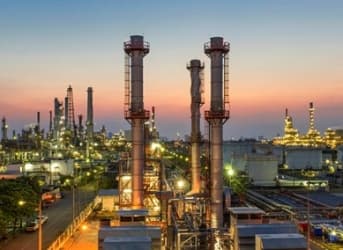As the oil and gas industry deals with a very unfavorable international market environment, Mexico’s current government can no longer ignore the risks posed by the country’s challenging security scenario.
2014 has been a difficult year for Peña Nieto’s government, as it endures a considerable public backlash resulting from a series of corruption scandals and its mishandling of the case of the disappearance of 43 students in Iguala, Mexico. Over the past six months, personnel of the oil and gas industry have also continued to be targeted by criminal groups.
Adopted from its predecessor, Peña Nieto’s security strategy has enjoyed some success in stabilizing key sensitive northern regions, but it is uncertain whether progress can be replicated across the country. Related: Low Oil Prices Have Silver Lining For Latin America’s Heavy Crude Producers
Corruption within the police force at the regional and municipal level remains endemic. Recent allegations of collusion between both military and police forces and criminal organizations point to the uphill battle in attempting to reform the country’s ailing security apparatus.
While the recent reforms announced by the government, largely as a result of the Iguala incident, are designed to increase transparency and accountability, they are likely to be ineffective. These reforms appear to be too vague and fail to address key flaws in the process of recruitment and oversight of security personnel.
With no clear consensus in Congress about the exact content of these proposals, observers expect delays. Moreover, the measures themselves could be weakened.
The recent formation of the National Gendarmerie (NG), a professional security force that aims to protect strategic infrastructure as the government shifts towards a more tactical security strategy, could finally stabilize security in sensitive areas. Nevertheless, more time is needed to test the security force’s operational effectiveness and ability to resist infiltration by powerful criminal networks.
In addition to the constant threat of kidnapping and extortion to employees involved in oil operations, the last 12 months have witnessed a growing security risk to the industry’s infrastructure. Most cartels have diversified their revenue portfolio away from drug trafficking to include the lucrative illegal oil trade. Siphoning incidents on pipeline networks are a constant occurrence in regions where security forces have been unable to maintain a constant presence.
Recent security measures taken by the municipal and federal governments, which include daily patrols, and developing a rapid incident response, have yet to yield any significant progress. Local police forces remain infiltrated by criminal groups, severely hindering operations by the military.
Besides pipelines and E&P facilities, ports are currently facing a difficult security scenario due to their strategic importance as the point of passage for both precursor chemicals and drugs. Several reports indicate that criminal groups have deep linkages with port authorities.
Currently, operators face the risk of extortion and industrial theft, while they remain exposed to a myriad of illegal activities. Even as the Navy has been tasked to manage security, this situation is unlikely to change in the near future. Related: Mexico Proceeds With Oil Auction Despite Low Oil Prices
Throughout the last decade, Mexico’s oil and gas sector has been able to cope with the evolving security challenges. Until now, violence brought by drug trafficking and operations by the cartels has been highly localized; companies have adapted well to shifts in their local environment by implementing proper security measures for key facilities and operations.
However, this status quo may be fading, resulting in large part from the evolution of criminal networks and the partial institutional failure of the country’s security forces.
As the oil and gas industry deals with a very unfavorable international market environment, the risks that Mexico’s challenging security scenario brings are a luxury that the current government can no longer ignore.
By Sergio Rojas
Source - http://globalriskinsights.com/
More Top Reads From Oilprice.com:
- Oil Price Winners And Losers In Latin America
- Oil Export Ban Slowly Eroding
- Big Oil Going Big In The Gulf Of Mexico


















